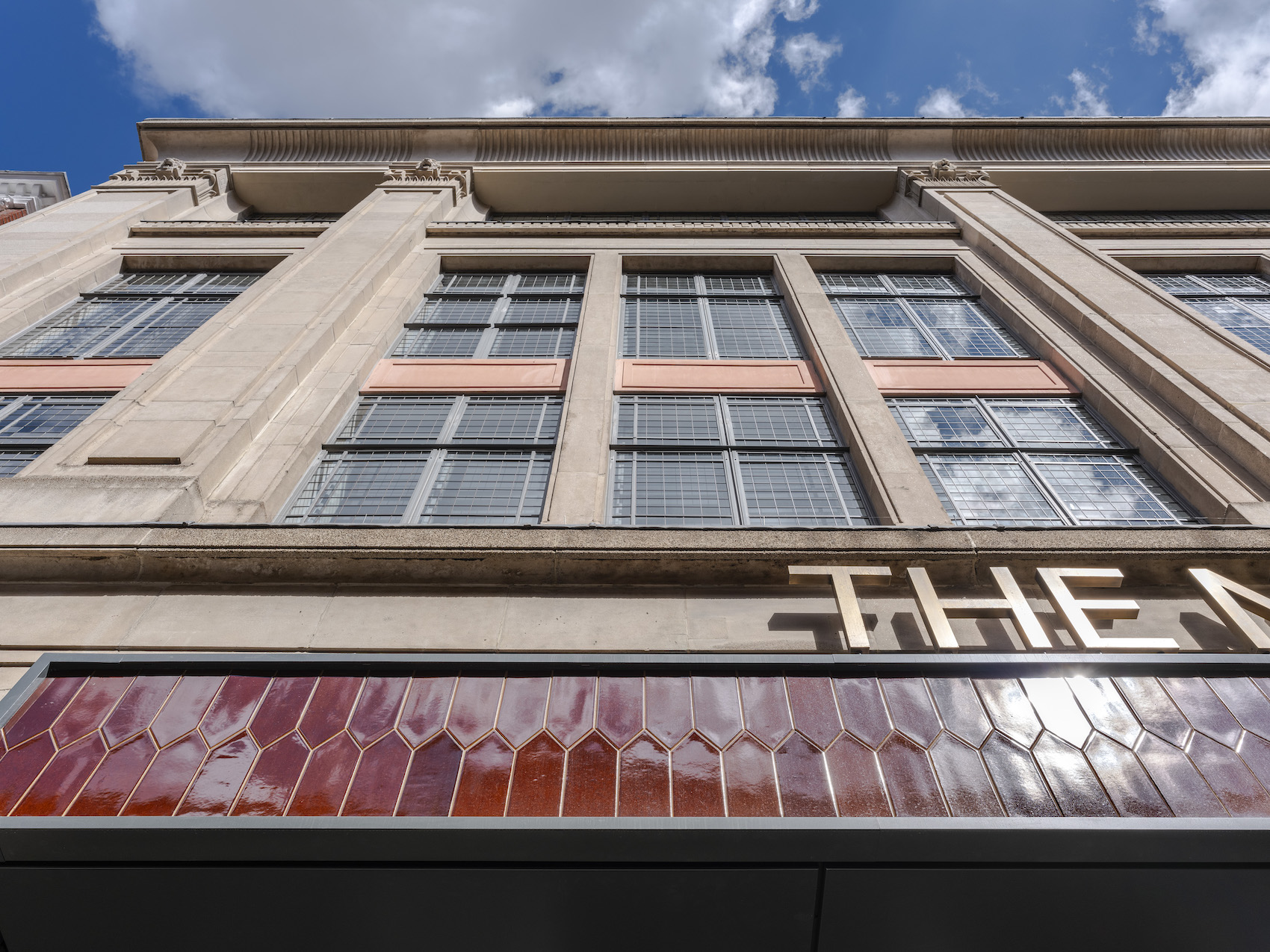John Robertson Architects has repurposed the 1920s Daily Mail HQ in the City of London to create one of the 1% of refurbishment projects to achieve BREEAM Outstanding.
John Robertson Architects (JRA) has retrofitted the former headquarters and print works of the Daily Mail newspaper on Tudor Street, close to Fleet Street in the City of London. Reincarnated as the Northcliffe, the project, originally designed by Ellis & Clarke in 1925, is one of the 1% of refurbished buildings to have attained BREEAM Outstanding, and exceeds RIBA’s 2030 embodied energy emissions targets.
The rehabilitation of the building, which hasn’t seen significant refurbishment since 2001, aims to deliver a future-proof asset that will ensure viability in a post-pandemic economy. JRA’s redesign incorporates the Grade II-listed façade of the original 1920s building and extends the top two floors to offer 186,700 sq ft of office space centred around a spectacular reimagined atrium. The Northcliffe offers extensive amenities, including three new landscaped roof terraces, lounge spaces, a library area, a quiet room, end-of-trip facilities, a café and a retail unit, all unified by references to the building’s post-industrial heritage.
The upgraded reception area includes a new reception desk, soft furnishings and breakout spaces, creating a ‘hospitality’ feel.
The redesigned space can accommodate future tenants in the extended upper floors, which open onto landscaped terraces, increasing biodiversity on the site and encouraging tenants to enjoy outdoor breaks. All building users are allowed access to the terrace on Level 7. The original 1920s Grade II-listed façade has been retained, while an octagonal turret, designed by Ellis & Clarke as a later addition to the building in 1929, has been refurbished to provide a flexible and accessible new amenity space. The main entrance and hall have been repositioned and reconfigured to provide amenity spaces including break out areas, a library, a quiet room, and a café. A new retail unit provides scope for flexible uses and an active frontage onto Tudor Street.
The decision to preserve the superstructure and the existing façade contributed to embodied carbon reductions. Focusing on minimising carbon emissions, the practice adopted the Life Cycle Assessment (LCA) as a sustainable approach. The retrofit includes air source heat pumps for simultaneous heating and cooling, improved insulation, new PV panels on the roof, and end-of-journey facilities including cycle storage, showers, and lockers.
Semi-exposed ceilings have been installed across all floors. Broad windows allow natural light deep into the workspace while respecting the building’s industrial heritage.
“Our design approach has sought to preserve as much of the original structure as possible while referring to The Northcliffe’s historic use as a journalistic and publishing hub,” says Etain Fitzpatrick, Associate Director, JRA. “It also allows The Northcliffe to adapt to the requirements of the modern, post-pandemic, workforce.”
He goes on to explain the approach to working with the historic structure, a steel-clad frame encased in reconstituted stone and brickwork: “The relationship between the 1920s façade and the floorplates is immediately evident to occupiers. At a granular level, many of the Art Deco, neo-Egyptian architectural features of the original Northcliffe House have been subtly referenced in the geometric patterns and colour schemes used throughout the refurbished building. The adaptive reuse of buildings once used to produce newspapers is in JRA’s DNA. In the case of The Northcliffe, we have drawn upon our experience of transforming legacy assets to maximise floorplate potential, thereby addressing the rapidly changing requirements of the office market, while ensuring that key elements of the building’s original identity are retained.”
Roof terraces on levels 5-7 incorporate biodiverse planting.
Credits
Client
Private client
Architect
John Robertson Architects
Development Manager
M3 Consulting
Structural Engineer
Waterman Structures
M&E Consultant/Sustainability Consultant
Watkin Payne
Quantity Surveyor
Gardiner & Theobald
Fire Engineering Consultant
Jenson Hughes
Landscape Consultant
Townshend Landscape Architects
Acoustic Consultant
Hann Tucker Associates
Facade Consultant
Thornton Tomasetti
Acoustic Consultant
Hann Tucker Associates
Principal Designer
John Robertson Architects/Bureau Veritas
Main Contractor
ISG
Heritage Consultant
KM Heritage
Planning Consultant
D9
Source: Architecture Today





